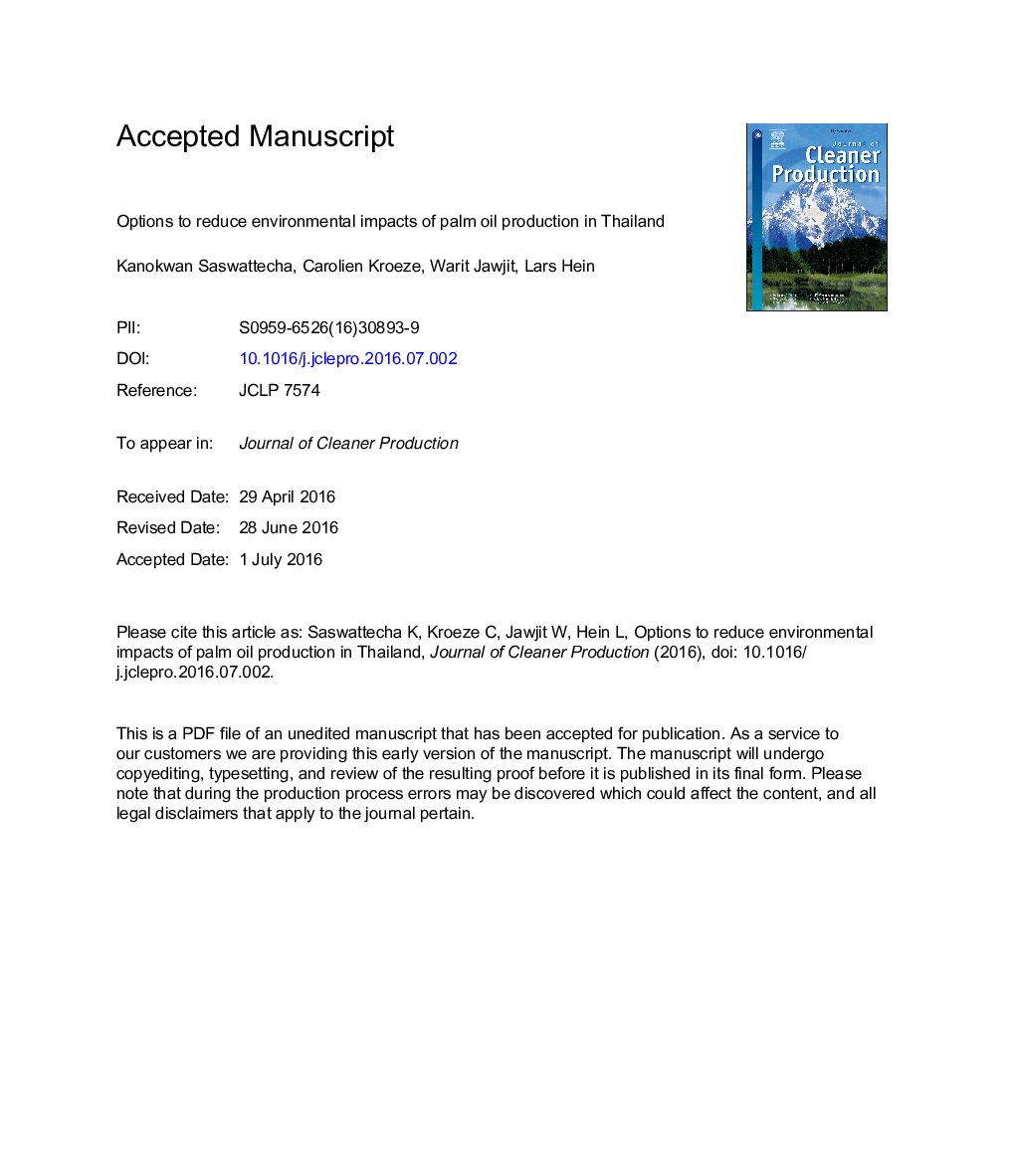| Article ID | Journal | Published Year | Pages | File Type |
|---|---|---|---|---|
| 8100814 | Journal of Cleaner Production | 2016 | 62 Pages |
Abstract
There is an increasing demand for palm oil worldwide. In Thailand, oil palm is being promoted by the government but this expansion is associated with several environmental impacts. We identified 26 options for reducing the environmental impact of palm oil production in Thailand, and assessed their cost-effectiveness. Our analysis includes measures that can be taken in plantations as well as in palm oil mills. We analysed the effects of the options in terms of reducing greenhouse gas emissions, acidification, eutrophication, photochemical ozone formation, human toxicity and freshwater ecotoxicity. Our analysis shows that empty fruit bunch (EFB) combustion, wet scrubbers and pre-heating fiber are the most effective in reducing multiple impacts. Among these, EFB combustion results in the largest environmental improvement, but at relatively high costs. Several options are found to be not only effective, but also generate a positive net return. These include cover crops, harvesting ripe fruits, mulching EFB, EFB composting, EFB pellets production, oil loss recovery from decanter cake and pre-heating fiber. The most paying options are mulching EFB, harvesting ripe fruits and cover crops. Our results are relevant for the promotion of more environmental friendly oil palm production in Thailand.
Related Topics
Physical Sciences and Engineering
Energy
Renewable Energy, Sustainability and the Environment
Authors
Kanokwan Saswattecha, Carolien Kroeze, Warit Jawjit, Lars Hein,
